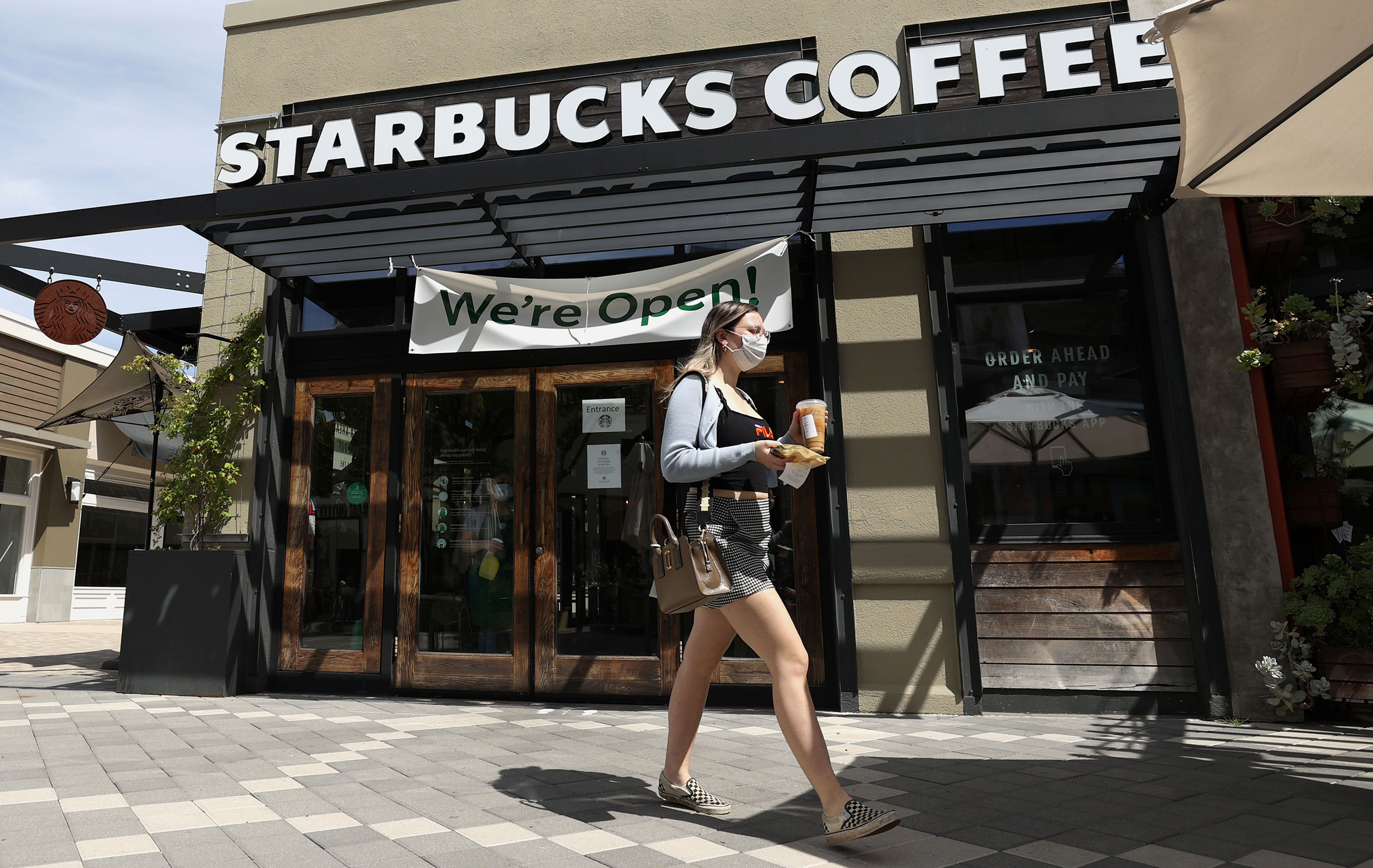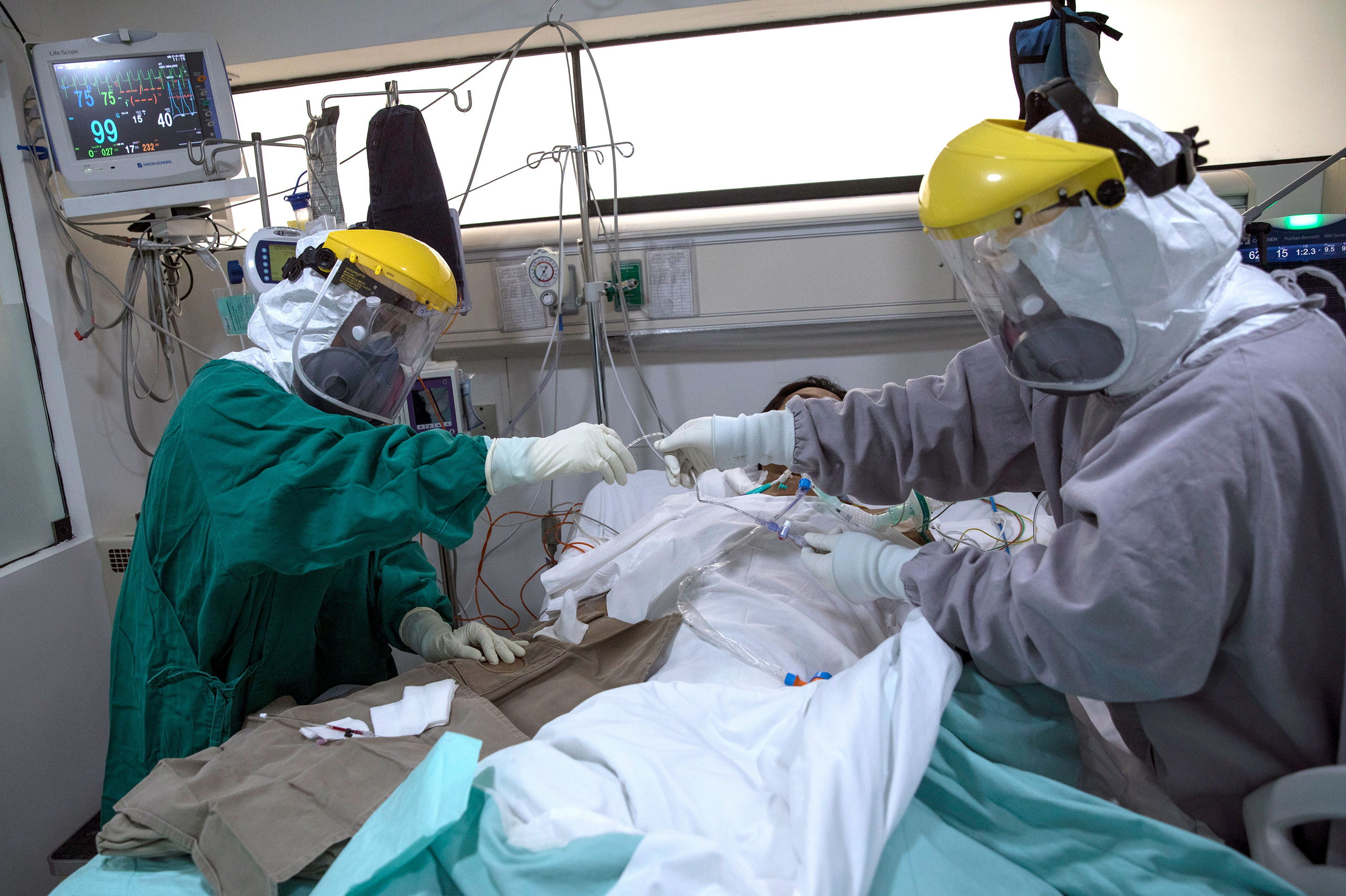
Starbucks said it will require all customers to wear facial coverings when visiting any of its US locations starting on Wednesday.
As cases of coronavirus surge across the country, Starbucks said it made the decision to prioritize the health of its employees and customers.
"The company is committed to playing a constructive role in supporting health and government officials as they work to mitigate the spread of COVID-19," the company said in a statement.
Customers who do not want to wear a mask can still order at the drive-thru. They can also place orders for curbside pickup or delivery, the company said.


